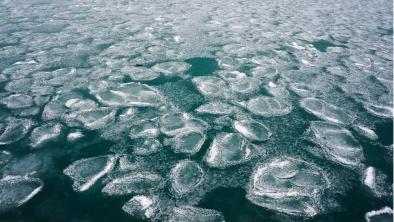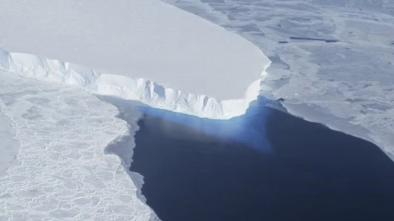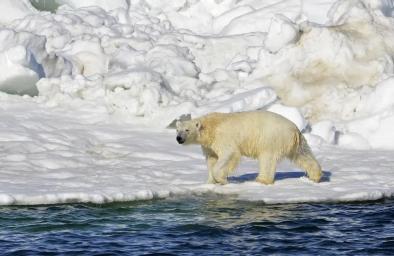Science Source
Reduced probability of ice-free summers for 1.5 °C compared to 2 °C warming
- States that Arctic sea ice has declined rapidly with increasing global temperatures; however, it is largely unknown how Arctic summer sea-ice impacts would vary under the 1.5 °C Paris target compared to scenarios with greater warming
- Uses the Community Earth System Model and shows that constraining warming to 1.5 °C rather than 2.0 °C reduces the probability of any summer ice-free conditions by 2100 from 100% to 30%
- It also reduces the late-century probability of an ice cover below the 2012 record minimum from 98% to 55%
- Finds that for warming above 2 °C, frequent ice-free conditions can be expected, potentially for several months per year
- States that although sea-ice loss is generally reversible for decreasing temperatures, sea ice will only recover to current conditions if atmospheric CO2 is reduced below present-day concentrations
- States that, due to model biases, these results provide a lower bound on summer sea-ice impacts, but clearly demonstrate the benefits of constraining warming to 1.5 °C
Related Content
Science Source
| Nature
Regime shift in Arctic Ocean sea ice thickness
Headline

Feb 21, 2023 | Climate Nexus Hot News
Ice Absent From Great Lakes, New England
Headline

Feb 16, 2023 | Climate Nexus Hot News
Antarctic Sea Ice At Lowest Recorded Levels, Again; Thwaites Glacier's Weak Spots Getting Weaker
Headline

Jan 25, 2023 | Climate Nexus Hot News
Melting Sea Ice Could Increase Threatens Polar Bears, People


